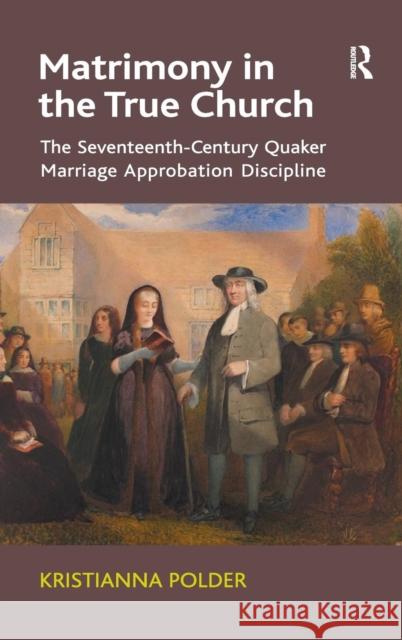Matrimony in the True Church: The Seventeenth-Century Quaker Marriage Approbation Discipline » książka
Matrimony in the True Church: The Seventeenth-Century Quaker Marriage Approbation Discipline
ISBN-13: 9781409466888 / Angielski / Twarda / 2015 / 302 str.
Like many other denominations, seventeenth-century Quakers were keen to ensure that members married within their own religious community. In order to properly understand the ramification of such a policy, this book explores the early Quaker marriage approbation process and discipline as demonstrated through the works and marriage of the movement's leaders, George Fox and Margaret Fell. The book begins with an introduction that briefly summarises the historical context of the early Quaker movement, the ministry of Fox and Fell, and importance they laid upon the marriage approbation discipline. The remainder of the book is divided into three broad chapters. Chapter one examines the practical aspects of the early Quaker marriage approbation discipline, including a summary of seventeenth-century courtship and marriage practice, and an analysis of early Quaker Meeting Minutes. Chapter two then looks at the theological foundations of the marriage approbation process, and the Quaker emphasis on a Good Order' and their desire to return to the primitive Christianity of the apostolic church. Chapter three examines the marriage between Fox and Fell, which they presented as a testimony of the union of Christ and his Church. Their married life is analysed through their correspondence to discover whether or not the marriage did indeed exemplify the spiritual gravity originally bestowed upon it by Fox, Fell and some in the Quaker community. Through this close investigation of Quaker marriage approbation, the book offers fascinating insights into early modern English society, attitudes to gender and the early Quakers' self-perception of themselves as the one and only True Church.











